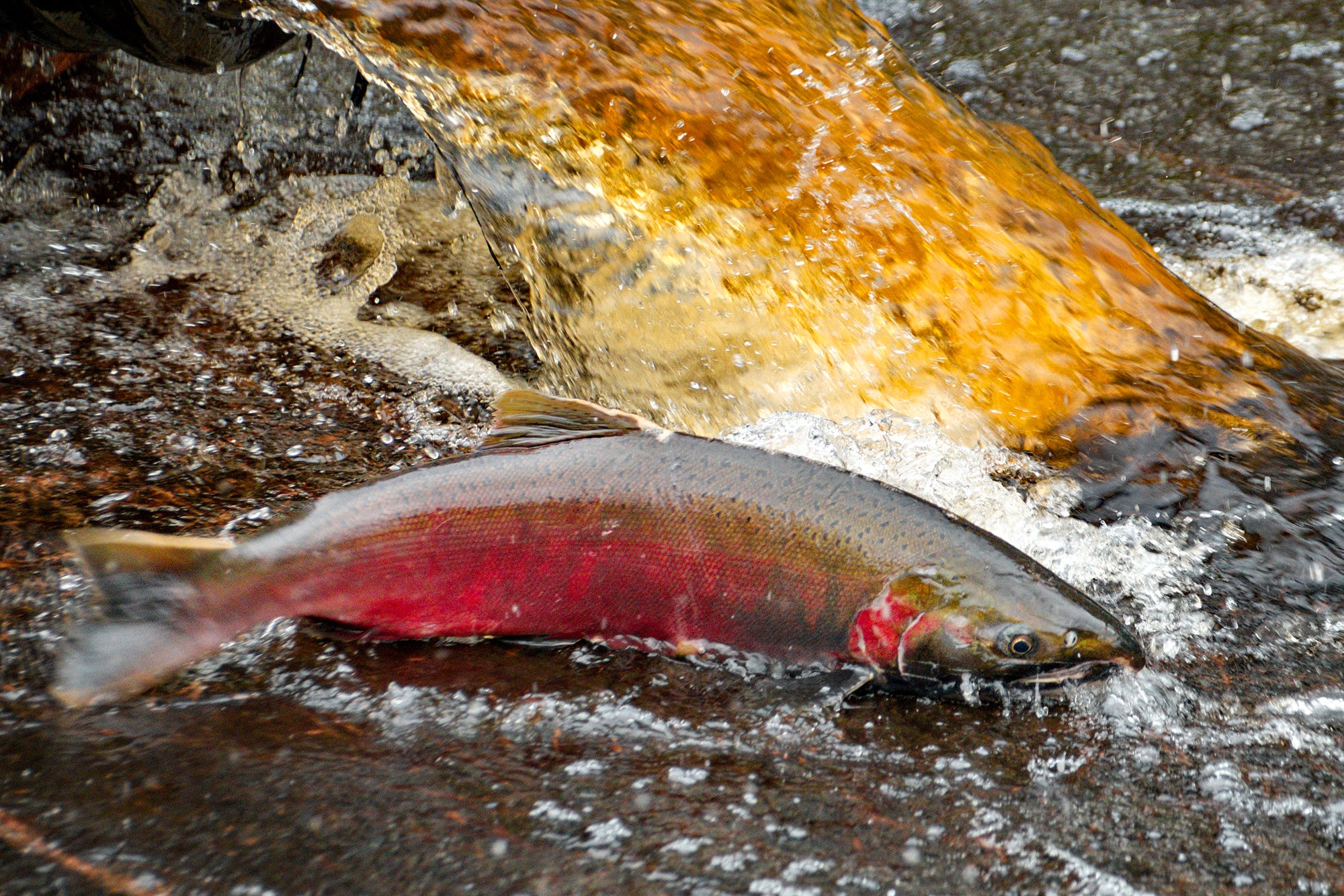EPA Grants Tribal Nations’ Petition to Restrict 6PPD in Tires
Victory
—EPA agrees with petitioners that federal regulation is needed to address environmental risks
Contact
The Environmental Protection Agency (EPA) today granted a petition submitted by the Yurok, Port Gamble S’Klallam, and Puyallup Tribes, which asked EPA to develop regulations that prohibit the use of the chemical 6PPD in tires due to the lethal effects on salmon, steelhead trout, and other wildlife. The agency agreed with the petitioners that “it is necessary to initiate” risk management rulemaking under the Toxic Substances Control Act “to address risk to the environment from 6PPD-quinone, a degradant of 6PPD.”
6PPD is added to virtually every vehicle tire. When 6PPD reacts with ground-level ozone, it breaks down into 6PPD-quinone or “6PPD-q” — the second most toxic chemical to aquatic species ever evaluated. Exposure to 6PPD-q can kill coho salmon within hours, and the chemical is responsible for “urban runoff mortality syndrome,” which kills up to 100% of coho returning to spawn in urban streams. In their petition, the Tribes argued that 6PPD in tires poses unreasonable risks to the environment, requiring the EPA to regulate the chemical under the Toxic Substances Control Act.
In September, the Affiliated Tribes of Northwest Indians adopted a resolution in support of the Port Gamble S’Klallam, Puyallup, and Yurok Tribes’ petition to ban 6PPD. The States of Washington, Oregon, Vermont, Rhode Island, and Connecticut also sent a letter to the EPA voicing strong support for the petition, noting that “6PPD, along with its highly toxic product 6PPD-q, poses an unreasonable threat to the States’ waters and fish resources, and to the continued existence of Northwest salmon and steelhead runs.”
“This is a victory for salmon and all species and people,” said the Puyallup Tribal Council, the Puyallup Tribe’s elected leadership. “6PPD is a major and uniquely lethal threat to the health of salmon in urban streams on our reservation. Banning this chemical from tires will be hugely important in protecting fish. We thank the EPA for taking our concerns seriously. We will always act to protect the fish, the water and our lands.”
“The petition is a huge win for ney-puey (salmon) and the planet,” said Joseph L. James, chairman of the Yurok Tribe. “The Yurok Tribe got involved because we are a fishing people, who understand the cultural and ecological importance of salmon. We could not sit idle while 6PPD kills the fish that sustain us. This lethal toxin has no place in any salmon-bearing watershed. We’re glad the EPA sided with the tribes.”
“This is a significant victory that will help to protect our waterways and keystone aquatic species from this devastating tire chemical,” said Elizabeth Forsyth, senior attorney with Earthjustice’s Biodiversity Defense Program. “Tribal communities have relied on access to healthy salmon populations since time immemorial, and EPA’s grant of the petition is the first important step to addressing this existential threat to the species. We are thrilled that the EPA has recognized that 6PPD poses an unreasonable risk to the environment and that the agency must now regulate it.”
Earthjustice submitted the petition on behalf of the Yurok, Port Gamble S’Klallam, and Puyallup Tribes.

Additional Resources
About Earthjustice
Earthjustice is the premier nonprofit environmental law organization. We wield the power of law and the strength of partnership to protect people's health, to preserve magnificent places and wildlife, to advance clean energy, and to combat climate change. We are here because the earth needs a good lawyer.